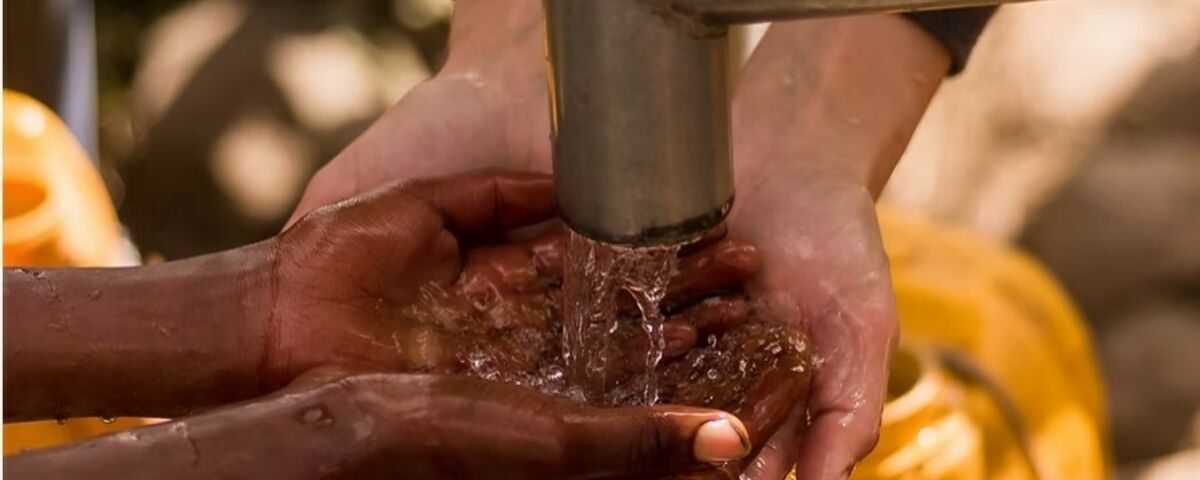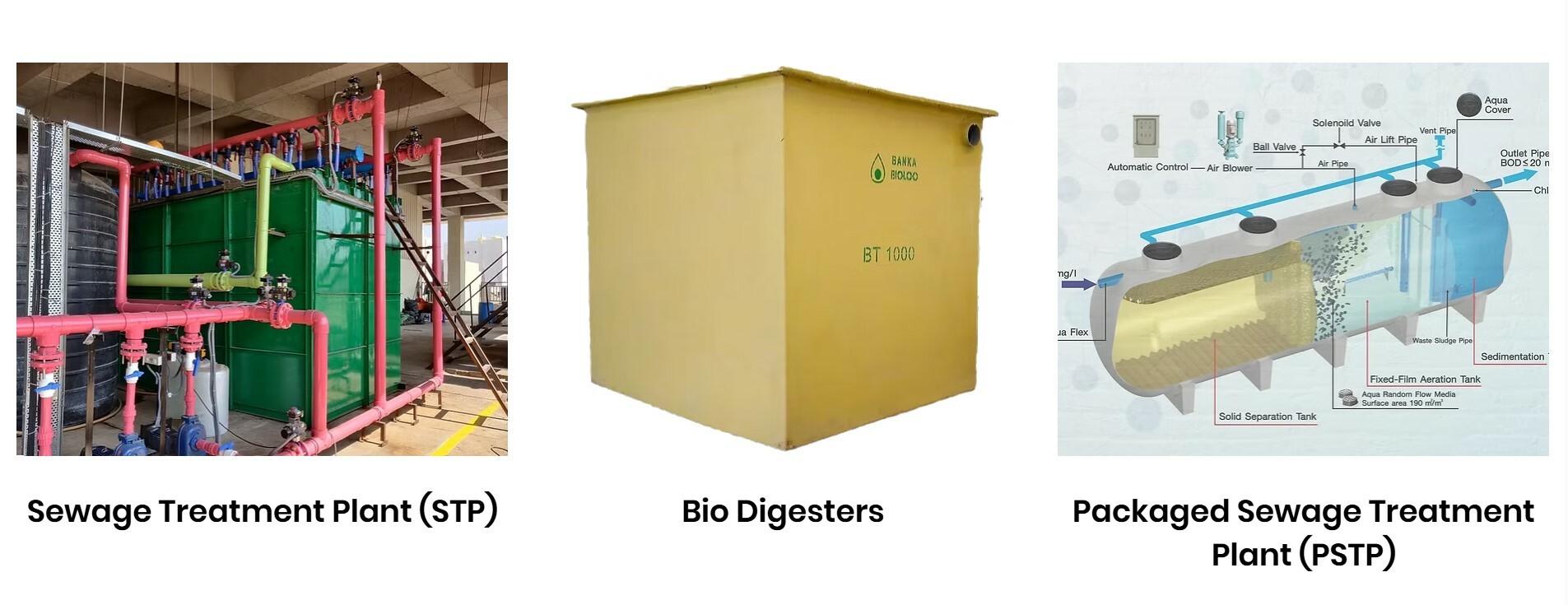




Keep this story going! Share below!
Banka BioLoo is an Indian social enterprise pioneering bio-digester technology to tackle open defecation and unsafe waste disposal. Founded by Namita Banka in collaboration with DRDO, the company has spent over fifteen years providing sustainable sanitation solutions in partnership with Indian Railways, schools, government institutions, and private developers. As Smriti Banka puts it, “At the end of the day, this is not an NGO but a business that provides a solution the world needs, while also creating social impact.”
The innovation at the heart of this story is both simple and life-changing. Banka BioLoo’s bio-digester toilets use specially developed bacteria to naturally break down human waste into clean, odorless water. Unlike septic tanks that merely store waste, these systems treat it at the source, protecting groundwater and sparing thousands from the degrading and unsafe practice of manual scavenging. What may look like a modest structure is, in fact, a quiet revolution in sanitation.
What makes these toilets extraordinary is their adaptability and longevity. Compact, durable, and reusable across decades, they can be installed anywhere—on trains, in rural schools, or at construction sites—bringing safety, dignity, and hygiene to spaces where such facilities were once absent. For a schoolgirl who no longer has to miss classes during menstruation, or a laborer who gains access to a clean toilet at work, the impact is deeply personal. By blending practicality with compassion, this innovation has become a powerful force for public health and social equity.

Empowering communities through sustainable sanitation: One installation at a time
The company’s journey was born out of a painful reality—open defecation had been an accepted practice in India for centuries. Many families did not build toilets in their homes, often due to tradition, leaving women to walk into fields under the cover of darkness, vulnerable to shame and danger. Namita Banka saw this injustice and resolved to change it. Her daughter, Smriti, recalls how deeply personal the work became: “There have been women in villages who literally begged my mother for a toilet. When installations were done, they came back to thank her for the security and dignity it gave them.”
These moments of gratitude became the soul of Banka BioLoo. For Namita and her team, toilets were never just about sanitation—they were about restoring humanity, protecting girls, and giving every individual the right to live with respect.
The impact of this innovation is most clearly seen in the lives of the people it serves. Banka BioLoo set out to address India’s long-standing sanitation crisis by introducing bio-digester toilets developed with DRDO technology. Installed in diverse settings like railway coaches, rural schools, labor colonies, and urban communities—over 100,000 units have been deployed across India. In the short term, these installations provided immediate access to clean and safe toilets, reducing open defecation, improving hygiene, and creating a sense of safety, particularly for women and girls.
The evidence of this impact is striking. In schools where toilets have been installed, absenteeism among girls has dropped significantly, especially during adolescence. Smriti Banka notes with pride, “We’ve seen absenteeism reduce because health has been better, and girls are not dropping out.” Access to sanitation has also reduced the prevalence of sanitation-related illnesses, providing healthier communities and easing the burden on local health systems. At a societal level, the innovation has played a pivotal role in dismantling the degrading practice of manual scavenging, offering safer and more dignified alternatives for waste management.
Over the long term, the ripple effects of this innovation extend far beyond hygiene. Communities that once lacked even the most basic sanitation now enjoy cleaner environments, improved health outcomes, and restored dignity. For women, toilets have meant safety at night; for children, uninterrupted education; and for marginalized workers, freedom from unsafe and inhumane labor.
What began as a response to one of humanity’s most basic needs has grown into a thriving enterprise that combines purpose with profit. By reimagining sanitation as both a social mission and a business opportunity, Banka BioLoo has built a model that improves lives while ensuring financial sustainability. The company generates steady revenue by providing bio-digester toilets and wastewater treatment services to Indian Railways, schools, government institutions, and private developers. This approach has not only secured long-term growth but also attracted new investment opportunities, including global backing from WaterEquity, which recognized the power of linking profitability with impact.
As the business expanded, so did its role as an employer and community builder. Banka BioLoo has hired and trained over 1,000 individuals, many from marginalized backgrounds. By investing in its workforce, the company has fostered higher retention and employee wellbeing, while giving staff a deep sense of pride in contributing to a mission that restores dignity and protects the environment. Smriti Banka emphasizes that although the company is profit-driven, its people are united by the belief that their work creates meaningful change.
Innovation has been the driving force behind this growth. From bio-toilets to sewage treatment plants, faecal sludge treatment facilities, and new models like STP-as-a-Service, Banka BioLoo has continuously opened new markets, both in India and internationally in Kenya and Uganda. By combining innovation with strong partnerships, the company has diversified its services, strengthened its reputation, and created a business that shows how growth and impact can flourish together.
For her contribution, Namita Banga received the Remarkable Ripple Effect of Toilet Access award at the Cartier Women’s Initiative – Impact Awards 2025.
At the heart of Banka BioLoo’s mission lies SDG 6: Clean Water and Sanitation, which calls for universal access to safe and sustainable sanitation and the protection of water resources. In India, where open defecation and untreated waste have long been critical challenges, Banka BioLoo’s innovation directly addresses this goal. By installing more than 100,000 bio-toilets across Indian Railways, schools, rural communities, and labor colonies, the company has ensured that sanitation facilities reach people who were historically excluded. For women and girls, this has meant privacy, dignity, and the freedom to attend school without interruption. For families, it has meant fewer waterborne diseases, safer living environments, and healthier children. For women and girls, access to a toilet means safety, privacy, and the freedom to pursue education without interruption. In schools, this simple facility reduces absenteeism and ensures that girls are not forced to drop out during adolescence. For entire communities, toilets bring cleaner surroundings, fewer diseases, and the end of open defecation. For workers, the company’s growth translates into jobs, training, and pathways to uplift their families, directly advancing SDG 10: Reduced Inequalities by creating opportunities for those often left behind.
Environmentally, the impact is equally significant. Bio-digesters prevent untreated waste from contaminating groundwater and reduce carbon emissions by eliminating the need for waste collection trucks. Over the past decade, Banka BioLoo has treated billions of liters of wastewater, promoted water reuse, and conserved scarce freshwater resources. The durability of these digesters ensures long-term efficiency with minimal material waste, reinforcing SDG 9: Industry, Innovation, and Infrastructure through sustainable, decentralized sanitation systems that serve both rural and urban areas.
Crucially, this transformation has been possible through collaboration. By working alongside government bodies, private organizations, NGOs, and global investors, Banka BioLoo has scaled its reach and amplified its impact. These partnerships embody SDG 17: Partnerships for the Goals, proving that lasting solutions to sanitation challenges emerge only through collective effort. At its core, every innovation and partnership strengthens building healthier communities and a more sustainable future for all.
Get stories of positive business innovations from around the world delivered right to your inbox.

Banka Bio offers comprehensive, sustainable sanitation and wastewater treatment solutions, including bio-toilets, bio-digesters, sewage treatment plants (STPs), and faecal sludge treatment plants (FSTPs). Their work spans installations across Indian Railways, educational institutions, CSR initiatives, and underserved rural and urban communities, combining infrastructure delivery with social impact. Through these operations, they have recycled billions of litres of wastewater, installed thousands of biotanks, maintained daily biotoilets on trains, and trained youth from low-income backgrounds.